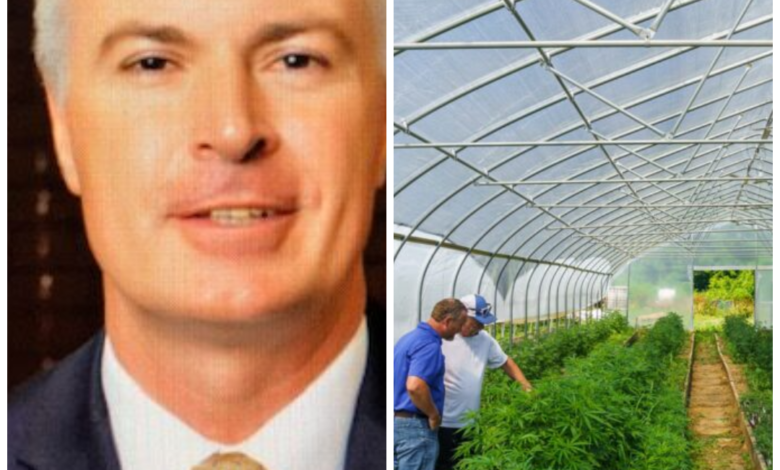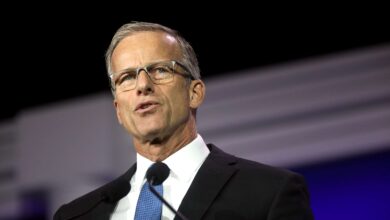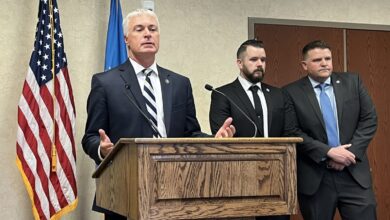Jackley want to close loophole on “Diet Weed”

South Dakota Attorney General Marty Jackley is among 21 top state prosecutors who’ve signed a letter urging Congress to close the loophole that created the diet weed industry as they craft the next farm bill.
Hemp-derived cannabis equivalents became legal with the passage of the 2018 farm bill, which legalized the cultivation of hemp as long as the plants contain less than .3 % THC. That chemical compound creates the “high” experienced by marijuana users, and is typically present only in lower levels in hemp.
Entrepreneurs, however, quickly began to concentrate and even synthesize the chemical cousins of THC found in the hemp plant. The resulting products, sold under names like Delta-8 or Delta-10, are widely available across the U.S. in smoke shops and convenience stores, though some states have banned them.
South Dakota lawmakers passed a bill barring their sale – but not their possession or use – during the 2024 legislative session. The bill becomes law on July 1.
The letter from the bipartisan group of attorneys general, addressed to the heads of the Senate and House of Representatives’ agriculture committees, argues that Congress ought to fix the problem it unwittingly created. The next farm bill, they said, should clarify that legalized hemp does not legalize hemp-derived intoxicants.
“Regardless of your Committees’ intentions, the reality is that (the 2018 farm bill) has unleashed on our states a flood of products that are nothing less than a more potent form of cannabis,” the letter says.
A press release from Jackley’s office notes that mislabeled products have led to emergency room visits in other states. Many of the products appeal to those younger than 21, he said, such as gummy candies or chocolates that ape the marketing of established consumer brands.
“Illicit suppliers are stealing legitimate brand names and packaging harmful and dangerous products as candy, snacks, and cereal,” Jackley said in the news release. “These copycat hemp products put people, especially children, at risk. They also jeopardize lawful hemp production for agricultural purposes here in South Dakota.”
In an interview with South Dakota Searchlight, Jackley said a federal solution is necessary to offer confidence and certainty to hemp growers and retailers of non-intoxicating CBD health products while protecting the public from unregulated sellers of cannabis-like products.
South Dakota leads the nation in hemp production.
“If South Dakota has different rules from North Dakota, that’s a problem for hemp growers,” Jackley said.
The other state attorneys general who signed the letter are from Arkansas, California, Colorado, Connecticut, District of Columbia, Georgia, Hawaii, Indiana, Iowa, Kansas, Maryland, Minnesota, Missouri, North Carolina, North Dakota, Oregon, Pennsylvania, Tennessee, Virginia, and Washington.




